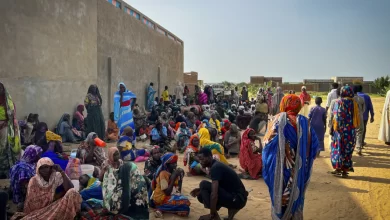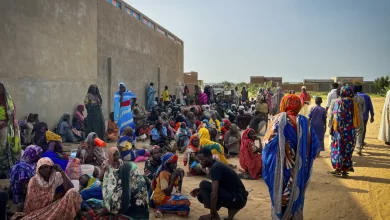Deepening Isolation and Fears of Retaliation

Port Sudan Authority under US pressure
The Port Sudan Authority along with its forces will face a new round of US sanctions on (June 6th), following Washington’s confirmation that they have used prohibited chemical weapons several times in various parts of Sudan during the country’s two-year civil conflict.
The expected US measures against the Port Sudan Authority forces will include restrictions on US exports and a block on access to US government lines of credit, underscoring Washington’s determination to disrupt the flow of weapons to Abdel Fattah Al-Burhan’s forces and hold his loyalist militia leaders responsible for the alarmingly high number of civilian casualties.
Furthermore, the latest US accusations against the Port Sudan government are consistent with dozens of international human rights reports that have explicitly accused Abdel Fattah Al-Burhan’s forces of committing horrific violations, including deadly attacks on civilians, a significant number of which were airstrikes on protected infrastructure such as schools, markets, and hospitals, in addition to summary executions and the burning of corpses.
According to experts, the latest sanctions on the Port Sudan Authority will block all property and interests -in the United States- of those named in the decision, moreover, Americans will be prohibited from holding or controlling such property.
Any entities directly or indirectly owned by the sanctioned individuals will also be blocked, as will all transactions conducted by Americans within the United States that involve any interests of the sanctioned individuals.
Violating US sanctions will result in sanctions on Americans and foreigners dealing with the sanctioned individuals.
Isolation and Ostracization
Some sources downplay the “tangible impact” of the latest sanctions on the Port Sudan Authority and its forces, especially since direct sanctions have previously been imposed on Al-Burhan himself, the most recent of which was in January, immediately after US President Donald Trump returned to the White House, when the administration accused him of choosing war over negotiations to end the conflict.
However, observers confirm that the new sanctions represent a continued pattern of targeting by Washington of the Port Sudan government, consolidating it as a “de facto authority” and stripping it of any “potential” legitimacy. More importantly, the sanctions confirm the continuation of the rift that began a few weeks after the conflict broke out in Sudan, as the successive administrations of Joe Biden and Donald Trump agreed to hold Abdel Fattah Al-Burhan’s forces responsible for “the greater part” of the war’s outbreak.
Abdel Fattah Al-Burhan had attempted to “reconnect” with Trump, congratulating the latter on being elected to serve a second term, in an effort to restore the relations and cooperation that existed during Trump’s first term. However, the US President shocked the Commander-in-Chief of the Port Sudan forces with direct sanctions, confirming in the second round of sanctions that he was completely excluded from the country’s political future.
Escalation with Washington
Immediately after the announcement of the new round of sanctions, the Port Sudan government, through the Minister of Culture and Information, Khaled Al-Aiser, rushed to “reject” the US statements and accusations, saying they were “nothing but political blackmail and a deliberate falsification of the facts,” according to the Minister.
The Port Sudan Authority’s comments regarding the US sanctions represent a significant escalation and expresses its “despair” at restoring relations with Washington. More importantly, Al-Aiser interpreted the US move as a response to the appointment of a new Prime Minister. Observers support this view, arguing that Port Sudan has lost any potential legitimacy and that any future steps aiming to modify the situation would be futile.
Valid Concerns
In contrast, the latest US sanctions on the Port Sudan forces raise concerns amongst human rights activists and relief organizations about potential retaliatory measures by the country’s de facto authorities, such as imposing further restrictions on relief operations.
Recently, the Port Sudan Authority has escalated its restrictions on relief operations, targeting volunteer activists. Press reports have also revealed that senior officials in Sudan’s de facto authorities have seized Arab and international aid arriving in Khartoum and sold it in other states at double the price.
Observers believe that relying solely on economic sanctions could push the Port Sudan government into further corruption. It has also demonstrated “indifference” to previous sanctions by escalating violations against civilians across the country.





